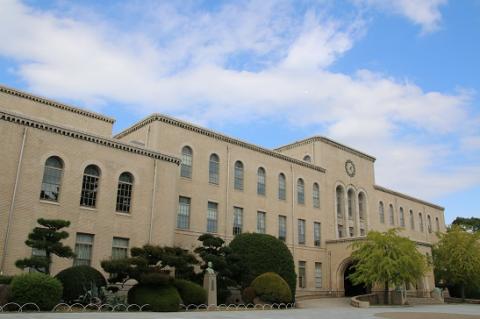I had the idea to study in Japan during my second year of high school. Having been drawn to Japanese student life through movies and dramas, I especially liked the idea of school festivals and club activities – most Chinese schools don’t have similar events. So after the final examination in the second year of high school, I started to learn Japanese by myself and shared my idea of studying abroad with my parents.
I chose the Faculty of Intercultural Studies at Kobe University because of its learning environment with a 1:2 ratio of professors to students and great opportunities to study abroad. However, for the first six months at university, I found the Japanese Kansai accent hard to understand.
I enrolled in 17 subjects in the first semester, which is unusual in some other countries, and I struggled with the high workload of tests and essays.
I found it hard to make friends across cultures, so I tried to improve the situation by googling “how to make friends at university”. One tip suggested that I join seminars and clubs, so I took several seminars and joined the Kobe University Broadcasting Club and the Kobe Risk Management Community. Through these groups I made many friends, experienced Japanese relationships, and observed and learned from club activities such as training camps. It has been fun.
There are many talented and dedicated students at Kobe University so I thought they would be serious, but I found that they were easy-going, friendly and fun. I was finally able to enjoy the university life in Japan that I had imagined.
After participating in overseas fieldwork on multiculturalism in Uganda, which allowed me to take a look at Japan from an outside perspective, I chose to go to the UK in my third year under a one-year exchange programme. Studying in Japan gave me the confidence to learn languages, get used to new environments and experience different cultures.
Studying at Kobe was a fulfilling experience. The views here are extraordinarily beautiful and the professors and administration staff are all helpful – they helped me with paperwork as well as my studies.
In class, I was given the opportunity to think about things in ways I had never considered before. One of the most interesting classes I took was gender and society, where I learned about LGBT issues for the first time.
My graduation thesis was on “expression packs”: collections of emoticons, stamps and internet memes used in social media. Creating and using those expression packs can be linked to expressions of humour, culture and identity.
After my graduation, I am going to work in the human resources sector. I believe that by helping other people find employment, I can contribute to society. Through listening to people’s stories about their lives, my own life experience will be enhanced. I am not sure whether I will stay in Japan for the rest of my life, but I would like to stay until the 2020 Tokyo Olympics at least.
Yue Xu from China just graduated from a four-year undergraduate course at Kobe University.

Comments